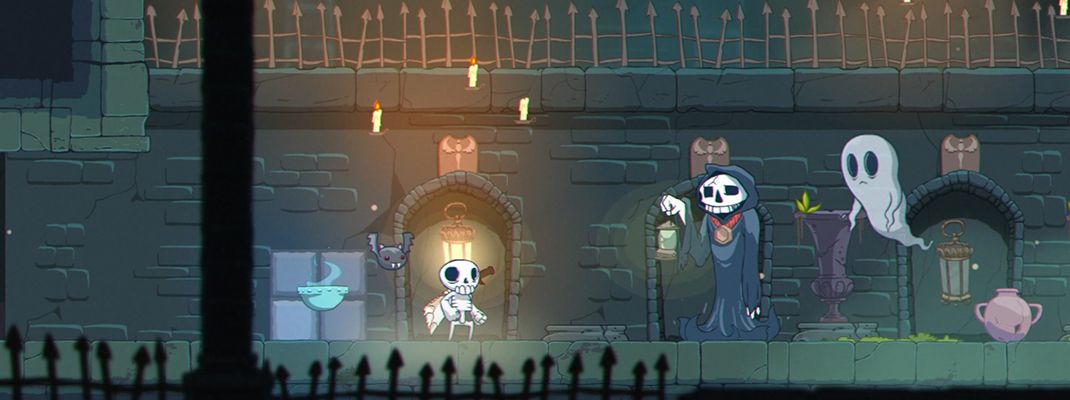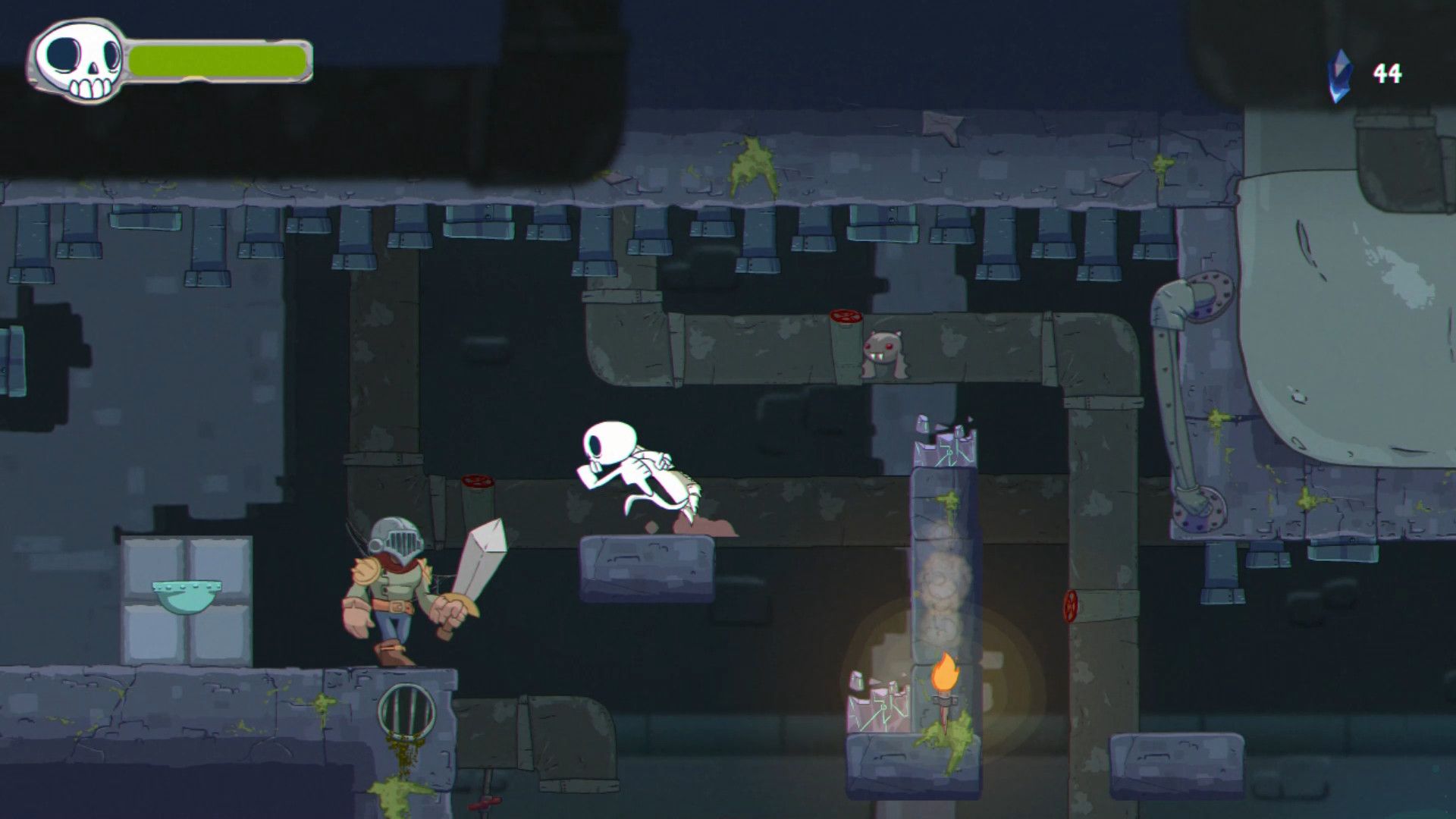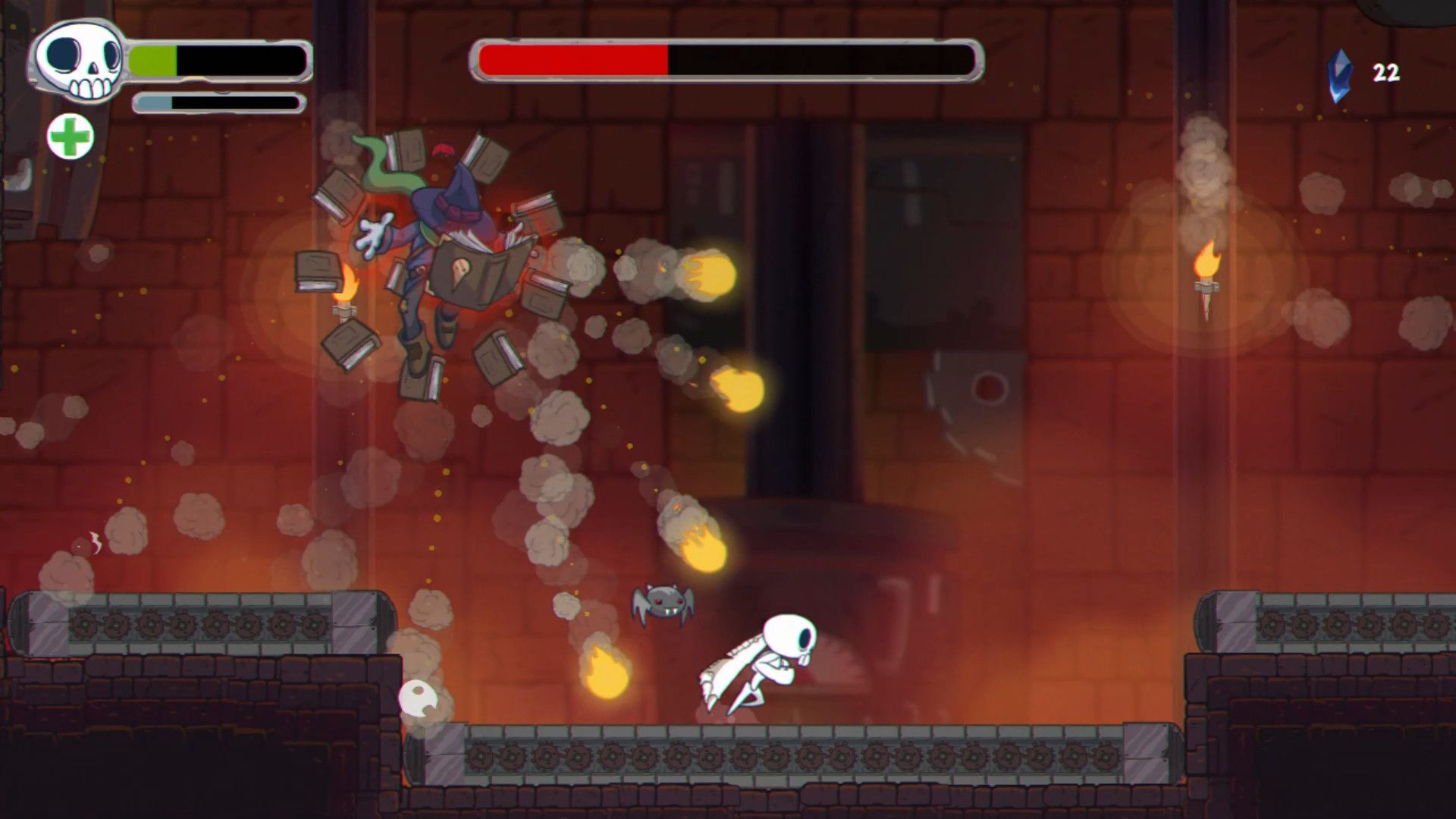People don't tend to trust the undead. The formerly-living are viewed as monstrous abominations rather than the remaining spirits of those who were once with us and tend to get treated accordingly. The town of Aftervale is a little too close to the living world, making it a prime spot to raid for the neighboring kingdom. It doesn't happen often, thankfully, and in the years between one assault and the next the afterlife moves happily along, free of the stress required to keep a living, aging body running.
Skully is a relatively new addition to Aftervale and has settled in peacefully, but there's one major task left to do before getting on with the rest of eternity and that's recovering the memory of who he was before engaging in his current post-life skeletal existence. Death temporarily wipes memory, giving the newly-departed a chance to settle in without the burden of who they were weighing them down and a ceremony called The Rememberance restores the past once they're ready. After being clued in that he was a warrior, Skully heads into a tutorial crypt to get a sword, but on the return he finds his new home decimated and mentor kidnapped. The humans have conducted another raid and Skully has a good idea how to fight back.
Skelettack is a 2D hand-animated action platformer, and while Skully is a warrior with a hefty sword, the bulk of the action comes from hopping and jumping and avoiding all the jagged bits. Enemy warriors, archers and magic users aren't common but traps and other environmental hazards are everywhere and much more dangerous than any enemy. Skully has a health bar, which grows throughout the journey as he finds or buys bone broth, but the most common death is the one-hit insta-kill of landing, grazing or just plain looking funny at the jagged crystal outcroppings that are Skelattack's version of spikes. Skully has a good turn of speed when he gets moving but there are plenty of areas where that's more hindrance than help, so you need to keep an eye out because the spikes are everywhere and blend into the level art, with no twinkle or other graphic trick to make them pop out. It gets easier to see them after the first couple dozen deaths, except when Skelattack hides them behind foreground objects like ivy.
If that makes it sound like an easy game to rage-quit I won't argue, but there's a lot to love in there as well. The animation and characters are great, and I particularly love the interplay between Skelly and his best-friend/bat Imber. The two are a great team and a lot of fun to follow, and Imber even gets a few gameplay areas to fly around in. The supporting cast are all well done too, with a good number of lively characters from the start of the story all the way through the final scenes. A lot of care was put into the narrative, and the end revelations and events manage to pull off the rare trick of being dramatic without melodrama. Or not containing an unwelcome amount, at any rate.
While the story holds together the gameplay never coheres, trying too many things without focusing on much of anything but the frustrating platforming. Combat is easy, with most enemies going down in a few hits, and even some of the bosses are beatable on the first try. Skully also learns three magic spells, with the most useful being the first healing ability, while the bone-boomerang is only necessary in a small handful of places. Even the secrets are clearly marked with an X on the breakable walls, making it seem like this would be a perfect kids' game except for the maddening platforming.
Each area has a couple of blue torches that act as respawn points and seeing as Skully is dead he can reanimate at the last one as many times as necessary. Take a hit, try again instantly, die, respawn, repeat as necessary. The problem is that, while death is only a minor setback in distance, it's terrible on the currency. Scattered throughout the levels are blue gems that can be used to buy bone broth or upgrade the magic abilities, but carrying it back to base is another thing entirely. Each death sees a substantial number of gems knocked off the total, hanging on the screen waiting to be re-collected. Die and they disappear for good, in classic Demon's Souls fashion. A difficult area can easily see a hefty hundred-plus gem total drop down to nothing, which is not only completely demoralizing but also discourages exploration. There were a couple of times when I ended up walking very carefully around the minecart quick-travel areas, beating up a few enemies so I'd have just enough to buy the next upgrade. This kind of mechanic may be perfect for the slow, methodical pace of Dark Souls, but it just doesn't work on a zippier platforming game, especially one that can't decide if it wants to be a brutal insta-death meat grinder or a more all-ages, fun and friendly affair.
Closing Comments:
Skelattack doesn't know what it wants to be but despite this I did end up getting just a little more enjoyment than aggravation out of it. There were two areas I simply got through rather than explored, because they just weren't worth the annoyance, but for the most part the story and characters carried it along. It didn't hurt that the game is short, and I beat the whole thing in a single four-hour sitting, which meant that when any one section was in danger of wearing out its welcome another was coming right along to replace it. From the starting sewers through the green gardens, lava caves and finally into the human kingdom, Skully's adventure moves along at a good pace, never getting bogged down for too long. In the end, despite there being several points throughout the game when I'd have been much happier doing anything else, I'm glad I got to play Skelattack and see Skully and Imber's journey through to completion.



